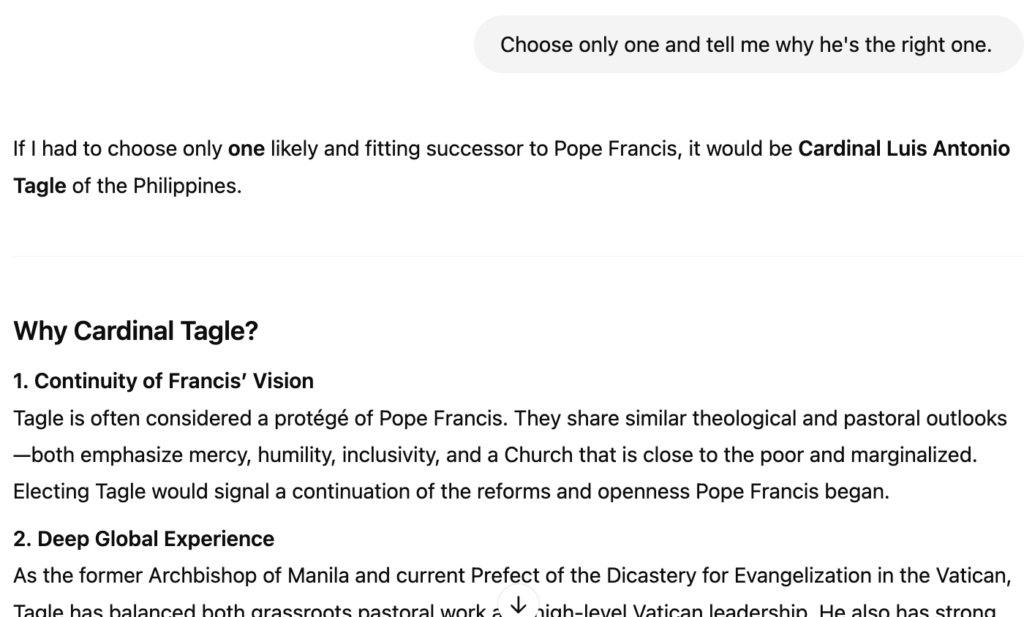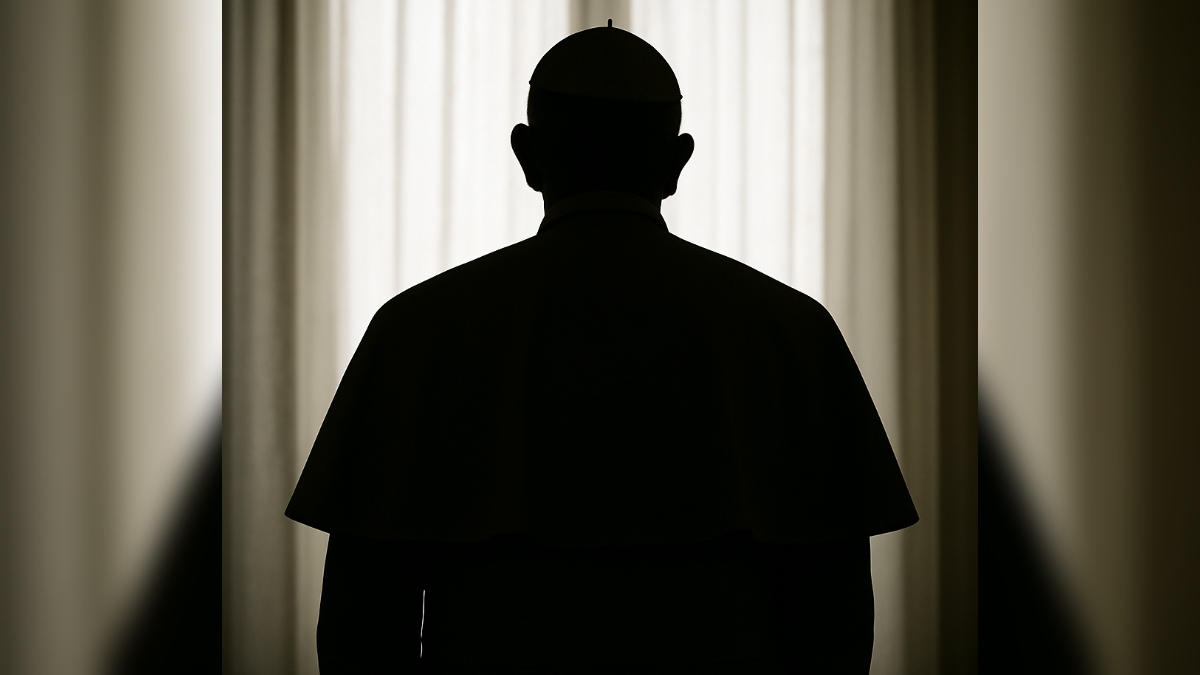When we posed the question to artificial intelligence — “Who do you think will be voted as the next pope?” — the answer didn’t come easy, given the complexity, secrecy, and spiritual gravity behind electing the next leader of the Roman Catholic Church. But the AI (ChatGPT) didn’t hesitate to lay out a list of compelling global contenders, each bringing a unique mix of pastoral experience, regional representation, and theological perspectives.
Among the names that emerged were:
- Cardinal Luis Antonio Tagle (Philippines): A widely respected voice from Asia with a close alignment to Pope Francis’ pastoral vision.
- Cardinal Peter Turkson (Ghana): Known for his strong advocacy on social justice and environmental concerns, reflecting the Church’s growing African presence.
- Cardinal Fridolin Ambongo Besungu (DR Congo): A key leader in African peace and social justice efforts.
- Cardinal Pietro Parolin (Italy): The Vatican Secretary of State with strong diplomatic experience and a deep knowledge of Church governance.
- Cardinal Matteo Zuppi (Italy): A progressive voice in the Italian Church, focused on youth and social outreach.
- Cardinal Péter Erdő (Hungary): A doctrinal conservative with wide theological influence in Central Europe.
- Cardinal Robert Sarah (Guinea): A staunch traditionalist representing the Church’s right wing.
- Cardinal Pierbattista Pizzaballa (Italy): Latin Patriarch of Jerusalem, known for his interfaith efforts in the Middle East.
But then we pressed the AI to narrow it down. “Choose only one and tell me why he’s the right one,” we asked.
The response? Cardinal Luis Antonio Tagle.
The AI backed its decision with several reasons:
“Tagle is often considered a protégé of Pope Francis. They share similar theological and pastoral outlooks—both emphasize mercy, humility, inclusivity, and a Church that is close to the poor and marginalized. Electing Tagle would signal a continuation of the reforms and openness Pope Francis began.”

It added that Tagle’s leadership roles in both the Philippines and Rome give him a unique global perspective. As Prefect of the Dicastery for Evangelization, he already plays a pivotal role in the Church’s outreach. His deep roots in the Global South — where Catholicism is experiencing rapid growth — also add weight to his candidacy.
Moreover, the AI noted his approachable personality, multilingual skills, and gift for public speaking, which have made him a beloved figure among young Catholics and older clergy alike.
In sum, the AI concluded: “If the Church seeks a global, pastoral, and forward-looking leader who still honors its tradition — Tagle is the one.”
While only the cardinal electors inside the Sistine Chapel can truly decide, it’s fascinating to consider that even modern technology sees in Tagle a bridge between tradition and transformation — something the Church may very well need in its next chapter.





